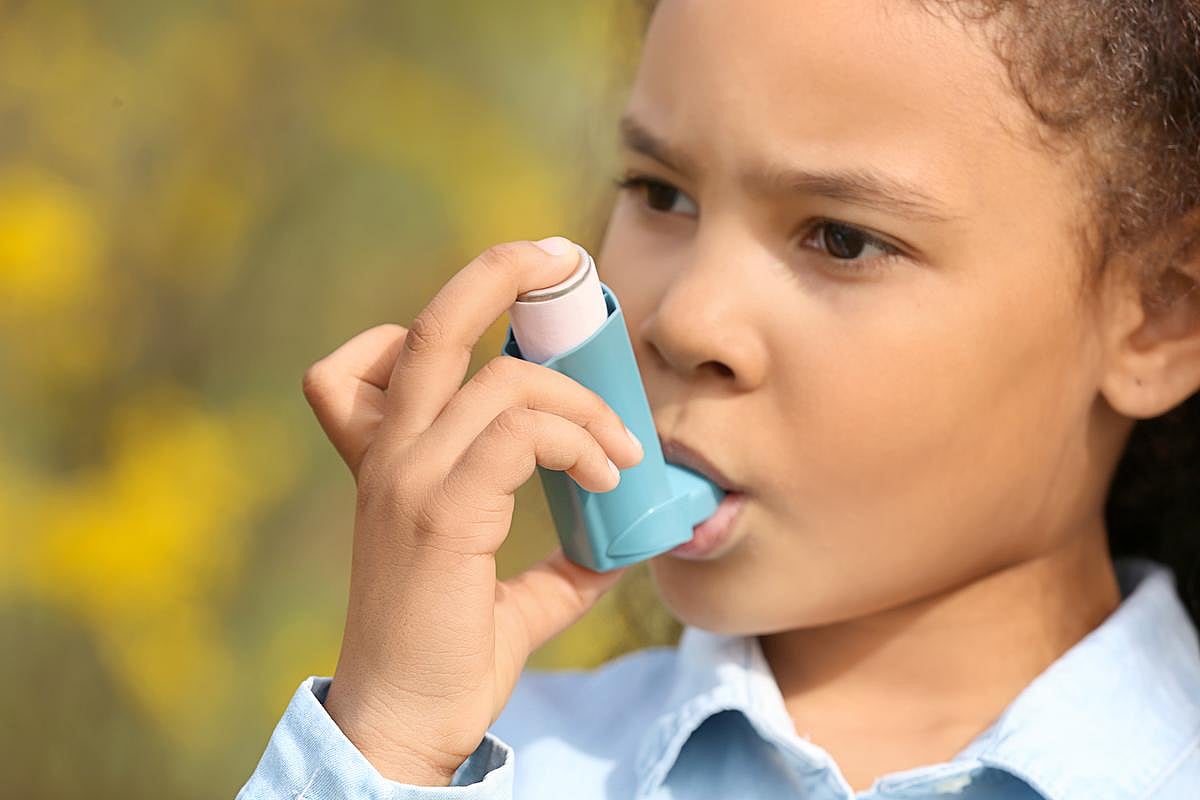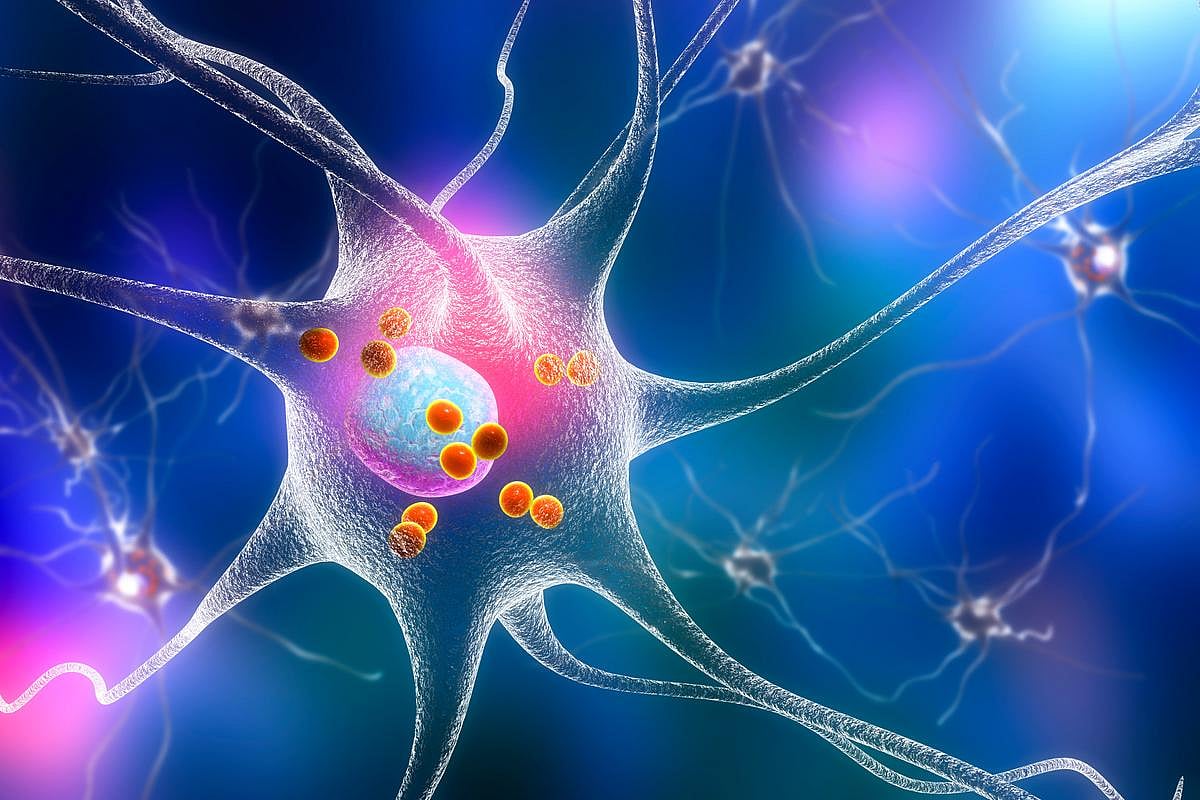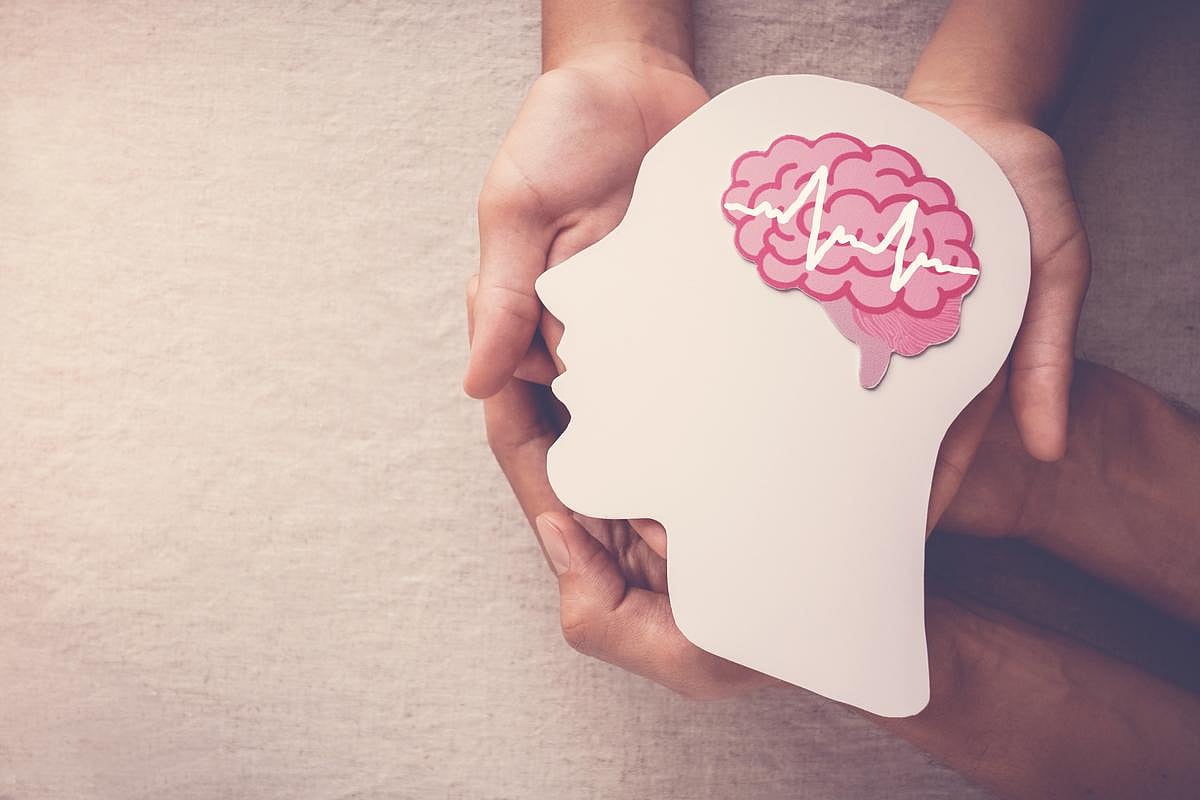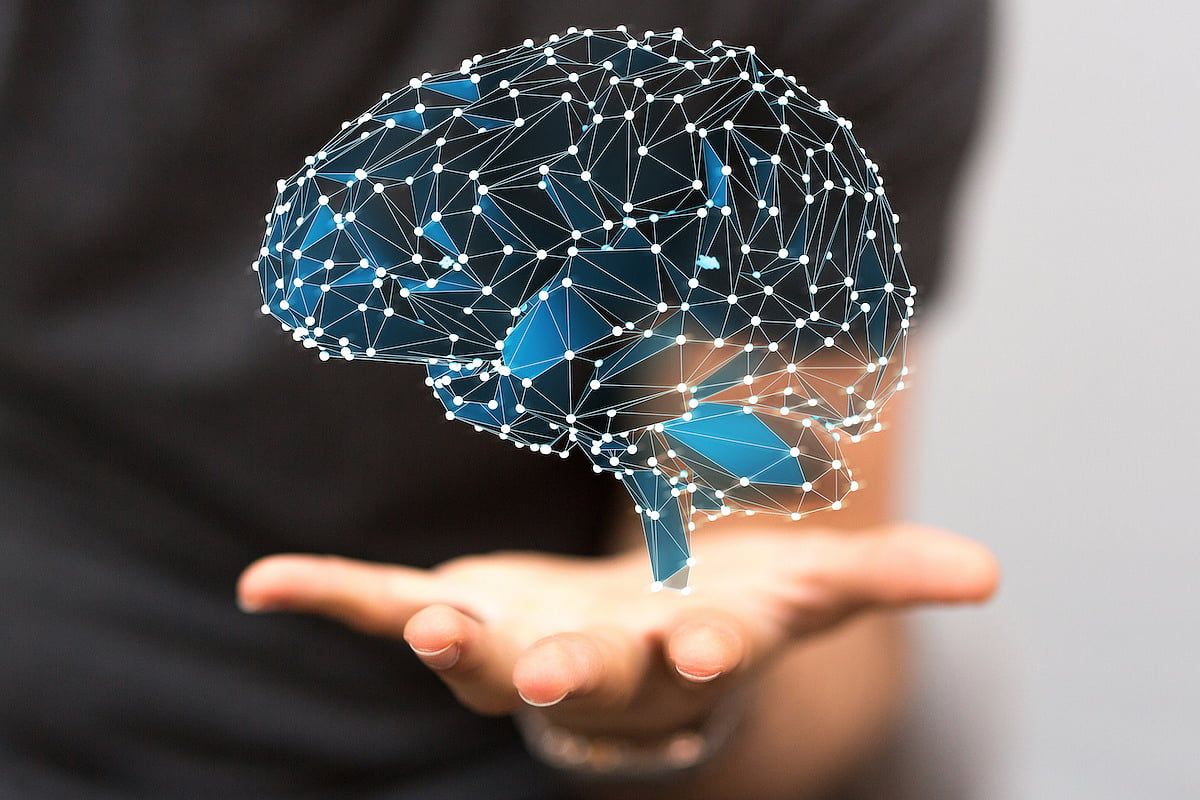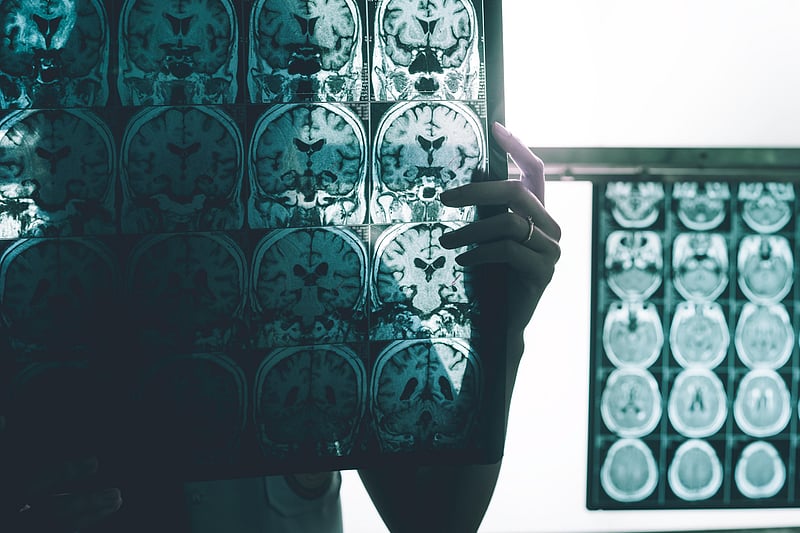Patient Resources
Get Healthy!
Results for search "Memory Problems".
Health Videos - 17
Hormone Replacement Therapy May Not Ease Memory and Mood Problems Related to Menopause
A large, new study finds menopause is associated with brain changes and poorer mental health — whether or not women use hormone therapy.
Does Intermittent Fasting Impact Your Brain Power?
A new study finds short-term fasting does not impair thinking and memory in healthy adults, but it may cause modest cognitive dips in children.
5,000 Steps a Day May Help Slow Alzheimer’s Changes in the Brain
In a new study, people with preclinical Alzheimer’s disease who took 5,000–7,500 steps a day experienced slower tau buildup and less cognitive decline over time.
Surprising Surge in Memory Struggles Among U.S. Adults Under 40
"Challenges with memory and thinking have emerged as a leading health issue reported by U.S. adults," especially those under 40, according to the author of a new study in the journal Neurology.
Soccer Headers May Affect Brain Structure and Memory
New research links frequent soccer heading with changes deep within the folds of the brain -- in an area involved in thinking and memory.
Insomnia May Speed Up Brain Aging and Dementia Risk
A new study suggests chronic insomnia may be an early warning sign or contributor to cognitive decline.
Popular Sugar Substitutes Linked to Faster Brain Aging
A new study finds artificial sweeteners typically found in ultra-processed foods and drinks may be associated with a faster decline in overall thinking and memory skills – especially in people under 60 and those with diabetes.
Don’t Ignore Hearing Loss—Your Brain May Depend On It
A new study finds early intervention for hearing loss significantly reduces the risk of dementia.
Lifestyle Changes Can Slow Cognitive Decline As You Age (U.S. Pointer Study)
Researchers say they’ve found a “formula and recipe to improve brain health” and cognition in people at high-risk for dementia.
Biking in Mid-Life May Lower the Risk for Dementia and Alzheimer’s Disease
A new study finds active transportation modes like biking may help lower the risk of dementia and protect a part of the brain linked to memory.
Caffeinated Coffee May Protect Your Body and Mind as You Age
Women who consume regular coffee in midlife are more likely to reach the age of 70 free of 11 major chronic diseases and with no cognitive impairment, according to a new study.
Sitting Too Long Increases Alzheimer’s Risk Even If You Exercise
A new study finds sitting too much leads to brain shrinkage even if you get the recommended 150 minutes of exercise per week.
Would You Want to Know If You Had Alzheimer’s Disease Before Having Symptoms?
More than 7 million U.S. adults are now living with Alzheimer’s, according to a new report from the Alzheimer's Association.
Treating High Blood Pressure Significantly Lowers Dementia Risk, Study Finds
Proven interventions for high blood pressure lower the odds for dementia and cognitive decline, according to researchers.
Heavy Drinking Increases the Risk for Dementia, New Study Finds
Having 8 or more alcoholic drinks per week may damage areas of the brain linked to memory and thinking.
Unhealthy Diet and Middle-Age Belly Fat Linked to Memory and Other Cognitive Problems
A new study finds diet quality and waist-to-hip ratio strongly impact brain function as you age.
Living Near an Ocean With High Levels of Microplastics May Impact Brain Function, a Preliminary New Study Finds
A preliminary new study finds an association between high levels of microplastics in the ocean and increased rates of cognitive decline in people who live in nearby coastal communities.
Health News Results - 96
Lights Are Dimming For America's Brain Power, Study Says
- Dennis Thompson HealthDay Reporter
- September 25, 2025
- Full Page
THURSDAY, Sept. 25, 2025 (HealthDay News) — A growing number of Americans appear to be losing their brain power, particularly younger adults, a new study says.
The U.S. has experienced a sharp increase in adults experiencing serious problems with memory, concentrat...
Hormone Therapy For Menopause Might Provide Memory Boost
- Dennis Thompson HealthDay Reporter
- August 29, 2025
- Full Page
FRIDAY, Aug. 29, 2025 (HealthDay News) — Hormone therapy for menopause might be able to boost memory, a new study says.
What’s more, t...
Lead Exposure Can Harm Kids' Memory, Study Says
- HealthDay Reporter
- Dennis Thompson
- July 10, 2025
- Full Page
THURSDAY, July 10, 2025 (HealthDay News) — Even low levels of lead exposure can harm kids' working memory, potentially affecting their education and development, according ...
Well-being Might Be Important To Memory
- HealthDay Reporter
- Dennis Thompson
- June 20, 2025
- Full Page
FRIDAY, June 20, 2025 (HealthDay News) — Caring for your emotional health might also help keep your memory sharp, a new study says.
People with higher levels of well-being have a reduced risk of memory loss in middle age, according to a new study published June 19 ...
No Babyhood Memories? Study Provides Clues Why
- HealthDay Reporter
- Dennis Thompson
- March 21, 2025
- Full Page
Babies and toddlers are sponges, incessantly soaking up lessons from the world around them.
So why, then, can’t adults remember specific events from their earliest moments of childhood?
A new study indicates that memories of baby experiences might remain, lur...
Heavy Weed Use Affects Young Adults' Short-Term Memory
- HealthDay Reporter
- Dennis Thompson
- January 30, 2025
- Full Page
Heavy weed use appears to dull the brains of young adults, particularly affecting their short-term working memory, a new study suggests.
MRI scans showed less brain activation in heavy tokers performing tasks that tested their ability to temporarily hold a limited amount...
Sleep Deprivation Lets Intrusive Memories, Bad Thoughts Into the Mind
- HealthDay Reporter
- Dennis Thompson
- January 14, 2025
- Full Page
People with post-traumatic stress disorder (PTSD) are plagued by unwanted and distressing memories over which they have little to no control.
Doctors now think they understand why PTSD
Coffee Can Boost the Brains of People with Certain Heart Conditions
- HealthDay Reporter
- Dennis Thompson
- December 23, 2024
- Full Page
Coffee provides a quick morning boost, but it might also protect the brain health of people with a common heart rhythm disorder.
A study p...
'Brain Boost' From Today's Exercise May Linger Through Tomorrow
- HealthDay Reporter
- Dennis Thompson
- December 11, 2024
- Full Page
Want to give your brain a boost for tomorrow?
Get in a little pulse-pounding exercise today, a new study shows.
In a finding that suggests the benefits of...
Short-Term Hormone Therapy for Menopause Won't Harm Women's Brains
- HealthDay Reporter
- Ernie Mundell
- November 22, 2024
- Full Page
Four years of hormone replacement therapy to help women deal with menopausal symptoms causes no harm to the brain, even over the long term, new research shows.
"In the present study, approximately 10 years after 48 months of early menopausal therapy... the cognitive perf...
Chronic Joint Pain Plus Depression Can Take Toll on the Brain
- HealthDay Reporter
- Ernie Mundell
- November 21, 2024
- Full Page
Having achy, painful joints isn't just a physical woe: Coupled with depression, it could also degrade an older person's brain function over time.
That's the conclusion of a study of almost 5,000 older Britons tracked for 12 years. People who had both chronic joint pain a...
Adding Blood Thinners to A-fib Treatment Won't Prevent Strokes, Help Cognition
- HealthDay Reporter
- Carole Tanzer Miller
- November 19, 2024
- Full Page
People using blood thinners to control their heart rhythm shouldn't expect the medications to head off thinking declines as well, new research s...
Could Asthma Harm a Child's Memory Skills?
- HealthDay Reporter
- Dennis Thompson
- November 11, 2024
- Full Page
Asthma is associated with memory problems in children, a new study has found.
Further, the early onset of asthma might worsen potential memory deficits in kids, researchers found.
Thi...
In Mouse Studies, New Clues to How Brain 'Refreshes' Memories
- HealthDay Reporter
- Dennis Thompson
- November 7, 2024
- Full Page
Memories are constantly adapting in the brain over time, dynamically updating as people encounter new information and fresh experiences.
Researchers think they’ve figured out the brain mechanism that drives this memory integration, based on a study of lab mice.
...Could Music Lessons Help Clear the 'Brain Fog' of Chemotherapy?
- HealthDay Reporter
- Ernie Mundell
- October 8, 2024
- Full Page
In a small, preliminary study, piano lessons provided to cancer patients undergoing chemotherapy appeared to help them maintain brain health.
"There were a lot of outside stressors contributing to my mood, but piano practice and going to lessons were always something go...
Hearing Loss Can Raise Risks for Cognitive Decline
- HealthDay Reporter
- Carole Tanzer Miller
- October 4, 2024
- Full Page
A new, large study from France underscores the link between adult hearing loss and dementia.
"Given the major burden of cognitive decline and the absence of curative treatment, identifying modifiable risk factors is of importance," a team led by
Could Antidepressants Give Memory a Boost?
- HealthDay Reporter
- Dennis Thompson
- September 23, 2024
- Full Page
Antidepressants have the potential to improve memory and thinking skills, a new study suggests.
Some patients experienced a boost on brain tests after taking the SSR...
Could 'Brain Training' Exercises Help Slow Alzheimer's Symptoms?
- HealthDay Reporter
- Dennis Thompson
- September 17, 2024
- Full Page
Brain training aimed at improving memory can ward off symptoms of Alzheimer’s disease for years, a new study claims.
Your Brain Cells 'Reset' During Sleep, Readying for Tomorrow's Memories
- HealthDay Reporter
- Dennis Thompson
- August 16, 2024
- Full Page
A good night’s sleep is crucial for helping people make new memories, a new study says.
Neurons that capture new memories during the day reset while you ...
Depression Could Take Toll on Memory With Age
- HealthDay Reporter
- Ernie Mundell
- June 12, 2024
- Full Page
Depression and memory declines may be closely linked in older people, new research suggests.
"Our study shows that the relationship between depression and poor memory cuts both ways, with depressive symptoms preceding memory decline and memory decline linked to subsequen...
Work That Challenges Your Brain Helps You Stay Sharp With Age
- HealthDay Reporter
- Dennis Thompson
- April 18, 2024
- Full Page
Jobs that challenge your mind could help your brain age more gracefully, a new study suggests.
The harder your brain works on the job, the less likely you are to have memory and thinking problems later in life, researchers reported April 17 in the journal Neurology<...
More Evidence Sleep Apnea Harms Thinking, Memory
- HealthDay Reporter
- Dennis Thompson
- March 4, 2024
- Full Page
Sleep apnea could have detrimental effects on the brain, causing memory or thinking problems, a new study suggests.
People suffering from sleep apnea are about 50% more likely to also report having memory or thinking problems, compared to those without sleep apnea, resea...
Your Brain Finds Ways to Compensate Against Age-Related Decline
- HealthDay Reporter
- Ernie Mundell
- February 8, 2024
- Full Page
No one's brain is as sharp at 60 as it was at 20.
However, new research supports the notion that folk's brains can make subtle adjustments with age to compensate for that decline.
A team of British researchers has found more evidence that as the mind ages, it somet...
Ancient Greeks Seldom Hit by Dementia, Suggesting It's a Modern Malady
- HealthDay Reporter
- Dennis Thompson
- February 2, 2024
- Full Page
Dementia seems like a disorder that's always haunted the human race.
But this form of severe memory loss is actually a modern malady, if classical Greek and Roman physicians are to be believed.
A new analysis of ancient Greek and Roman medical texts suggests that d...
Poor Sleep in Your 30s, 40s Could Mean Memory Problems Later
- HealthDay Reporter
- Dennis Thompson
- January 4, 2024
- Full Page
People who get poor sleep in their 30s and 40s might be more likely to develop memory and thinking problems a decade later, a new study warns.
Those who had the most disrupted sleep in early adulthood had more than double the odds of poor thinking performance when tested...
Resolve to Get a Free Memory Screening in 2024
- HealthDay Reporter
- Dennis Thompson
- January 3, 2024
- Full Page
There are so many New Year's resolutions from which to choose, but an important one could be to schedule a memory screening, experts say.
Memory screenings consist of a series of questions that gauge memory and brain function, according to the Alzheimer's Foundation of A...
Pets Bring Health Boost to Single Seniors' Brains: Study
- HealthDay Reporter
- Ernie Mundell
- December 27, 2023
- Full Page
For the growing number of American seniors who live alone, having a beloved dog or cat by their side could help them maintain a healthy brain.
New research on more than 7,900 people averaging 66 years of age found that those who lived alone were able to stave off losses ...
More Research Shows the Brain Benefits of Exercise
- HealthDay Reporter
- Ernie Mundell
- December 14, 2023
- Full Page
Regular exercise appears to enhance and even grow crucial areas of the human brain, new research using MRI scans shows.
It's long been known that physical activity is a brain-booster, but this international study illustrates ways this could be happening.
"With comp...
Wasabi Shows Memory-Boosting Powers in Study
- HealthDay Reporter
- Robin Foster
- December 5, 2023
- Full Page
Wasabi, that green condiment that spices up your sushi, may possess memory-boosting powers, a new Japanese study suggests.
Lead researcher Rui Nouchi, an associate professor at Tohoku ...
Cognitive Decline May Come Earlier for People With Epilepsy
- HealthDay Reporter
- Dennis Thompson
- December 5, 2023
- Full Page
People with epilepsy suffer quicker declines in thinking than people without the brain disorder, particularly if they also have risk factors like high blood pressure or diabetes, a new study finds.
The difference was significant: Over the course of the 14-year study, tho...
In Twins Study, Concussions in Early Life Tied to Memory Issues Decades Later
- HealthDay Reporter
- Cara Murez
- September 7, 2023
- Full Page
Your thinking and memory skills may take a hit decades after recovering from a concussion, a new study indicates.
Scientists who studied male twins, from an average age of 67, found that earlier concussions were tied to lower scores on tests of thinking and memory....
Yoga Might Do Wonders for Women's Aging Brains
- HealthDay Reporter
- Sarah D. Collins
- August 3, 2023
- Full Page
Yoga is known for its benefits to both the mind and body. And a gentle form of yoga may be an ideal early intervention technique for older women at risk of Alzheimer's disease, new research suggests.
In a small study involving kundalini yoga, participants reported ...
Memory Troubles? Your Race Could Affect How Soon You Get Diagnosis, Treatment
- HealthDay Reporter
- Cara Murez
- August 3, 2023
- Full Page
Black Americans are less likely to be seen at a memory clinic than their white peers. So too are folks from neighborhoods that are poor and lack educational and job opportunities, according to a new study.
That could mean later diagnosis and treatment for dementias lik...
Memory Issues Could Be Another Struggle for Kids With Autism
- HealthDay Reporter
- Amy Norton
- July 11, 2023
- Full Page
Children with autism have well-known difficulties with social interactions, but a new study is highlighting another area where they can struggle: memory.
Researchers found that compared with their peers, school-age kids with autism showed more difficulty managing memory ...
Erectile Troubles in Middle Age a Bad Sign for Men's Brains
- HealthDay Reporter
- Denise Mann
- June 2, 2023
- Full Page
Erectile dysfunction (ED) has been tied to an increased risk of diabetes, high blood pressure and heart disease. Now, research suggests that erectile woes during late middle age may also be linked to a man's chances of developing memory issues later on.
"Because sub...
Compounds in Chocolate, Berries Might Help Boost Memory As You Age
- HealthDay Reporter
- Cara Murez
- May 30, 2023
- Full Page
You'll likely lose some of your memory and thinking abilities as you age, but nutrients called flavanols might help thwart that decline, a new study suggests.
Not getting enough flavanols -- natural compounds found in fruits, vegetables and ev...
Could Long COVID Change Brain Activity?
- HealthDay Reporter
- Cara Murez
- May 1, 2023
- Full Page
Scientists report that brain scans of long COVID patients show abnormal activity in areas related to memory.
The scan results validate the concerns of these patients, who feel like they're experiencing fatigue, trouble concentrating and memory issues, even though their s...
Does Exercise Really Help Your Brain? Jury Still Out
- HealthDay Reporter
- Dennis Thompson
- March 27, 2023
- Full Page
It's long been thought that working out helps a person stay sharp, but a new review argues there's little solid scientific evidence for the mental benefits of physical exercise.
Individual clinical trial results have tended to support the idea that regular exercise helps...
Could COVID Trigger 'Face Blindness'?
- HealthDay Reporter
- Amy Norton
- March 16, 2023
- Full Page
The list of symptoms that can strike long COVID sufferers has just gotten a little longer, and a little more mysterious: Researchers are reporting a case of "face blindness" related to the syndrome.
The condition, known medically as prosopagnosia, causes a very specific ...
Alzheimer's Report: Many Seniors With Memory Issues Aren't Telling Their Doctors
- HealthDay Reporter
- Amy Norton
- March 15, 2023
- Full Page
Alzheimer's is one of the most common and serious diseases of aging, yet many older adults with memory issues are not telling their doctors about their struggles.
That's according to a new report from the Alzheimer's Association that focuses on whether doctors and patien...
Initial Symptoms Could Predict How Fast Alzheimer's Progresses
- HealthDay Reporter
- Dennis Thompson
- January 25, 2023
- Full Page
Memory loss is the most common symptom associated with Alzheimer's disease -- the terrifying prospect of slowly forgetting yourself and everything around you.
But people who exhibit memory loss early on in their dementia actually have a slower rate of decline than those ...
New Year: Time for Your Memory Screening Appointment
- HealthDay Reporter
- Cara Murez
- January 11, 2023
- Full Page
Many conditions cause memory issues, and early detection is essential for effective treatment, according to a national Alzheimer's disease organization.
The Alzheimer's Foundation of America (AFA) encourages people to get a memory screening in the new year.
The fo...
Smokers More Prone to Memory Loss by Middle Age
- HealthDay Reporter
- Cara Murez
- December 27, 2022
- Full Page
If you need another reason to quit smoking, researchers have one: your mid-life brain health.
Not only does smoking harm lung and heart health, but it increases the chances of middle-aged memory loss and confusion, a new study shows.
The likelihood of mental ("cog...
Mood Swings, Memory Troubles: Minding the Mental Toll of Menopause
- HealthDay Reporter
- Cara Murez
- December 21, 2022
- Full Page
Menopause and the years before it may make you feel like you're losing your mind.
Some of those feelings are changes that occur naturally in this stage of life, but other factors contribute, too, according to the
Exercise, Mindfulness May Not Boost Seniors' Thinking, Memory
- HealthDay Reporter
- Cara Murez
- December 13, 2022
- Full Page
Exercise and mindfulness are known for their health benefits, but a new study found that didn't extend to boosting memory or thinking skills in healthy seniors.
That doesn't mean these activities wouldn't be beneficial for memory if practiced for a longer period of time...
Aerobic Exercise Reinvigorates the Aging Brain
- HealthDay Reporter
- Dennis Thompson
- November 16, 2022
- Full Page
Regular aerobic exercise improves blood flow to the brain, which should help keep seniors sharper as they age, a new trial has revealed.
At least a half-hour of power walking or jogging four to five times a week promoted better blood flow in and out of the brain among a ...
Could 'Food Stamps' Program Give Memory a Boost?
- HealthDay Reporter
- Cara Murez
- November 10, 2022
- Full Page
Signing up for "food stamps" might help lower-income seniors preserve their mental capabilities, a new U.S. study suggests.
Researchers found that eligible older adults who used the government's
What's Better for Your Brain, Crossword Puzzles or Computer Games?
- HealthDay Reporter
- Amy Norton
- November 2, 2022
- Full Page
Older adults looking to slow down memory loss might find some help in a classic brain-teaser: the crossword puzzle.
That's the suggestion of a small study that followed older adults with mild cognitive impairment -- problems with memory and thinking that may progress to ...
Get a Free Memory Screening From the Alzheimer's Foundation This November
- HealthDay Reporter
- Cara Murez
- November 1, 2022
- Full Page
Early detection of memory issues is important.
It can help rule in or out a variety of health issues, including vitamin deficiency, thyroid condition, sleep apnea, urinary tract infection and, of course,
Scientists Probe How Sleep Helps Create Lasting Memories
- HealthDay Reporter
- Dennis Thompson
- October 25, 2022
- Full Page
It's a question many have asked: How are memories made to last?
Now, a new study claims they are solidified during sleep through the interplay of two distinct brain regions.
Memories are set in the brain as it cycles between slow-wave and rapid eye movement (





.jpg?w=1920&h=1080&mode=crop&crop=focalpoint)







